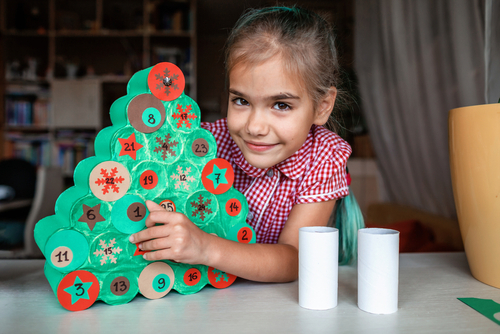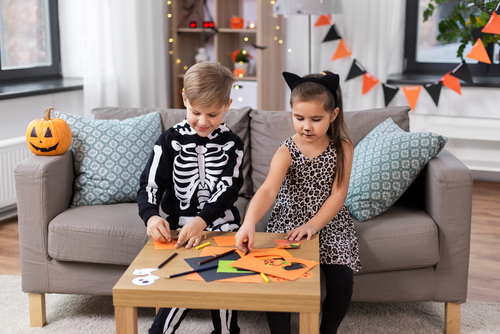Each year on September 23 we celebrate International Day of Sign Language, raising awareness of just how valuable sign language is in our communities.
Signing doesn’t just provide a crucial support for deaf individuals to communicate, but it can also play a meaningful role for children and educators in early childhood education, and people with living communication and behavioural disorders. BONUS: Download our free set of Auslan flashcards for children at the end of this article.
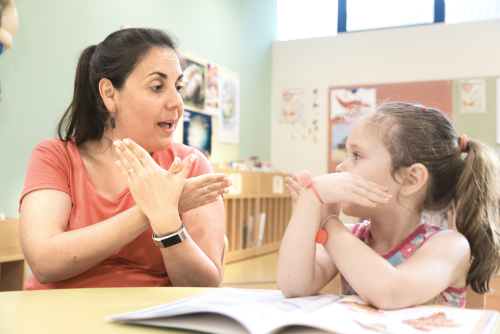
Understanding sign language
Sign language is a visual and gestural mode of communication that uses handshapes, facial expressions, and body movements to convey meaning.
While sign language can transcend communication beyond the spoken word, it’s worth noting that there are different types of sign languages across the world. American Sign Language (ASL), British Sign Language (BSL), and Auslan (Australian Sign Language) are just a few examples.
Sign languages provide a crucial means of communication for deaf individuals, but their benefits extend far beyond, and can be an incredible tool in early childhood education.
Fostering inclusivity and enhancing communication in ECEC
In early childhood education, inclusivity is a must. Sign language can help educators to create an inclusive environment where every child can thrive. Here’s how:
Overcoming communication challenges: It’s not uncommon for children to have difficulty expressing themselves verbally at a young age. Sign language offers an alternative means of communication, allowing children to convey their needs, thoughts, and feelings effectively.
Enhancing children’s development: Learning sign language can boost cognitive development in children. It stimulates their visual and motor skills, fostering early brain development.
Promoting social engagement: Sign language encourages social interaction among children. It empowers them to connect with their peers, regardless of linguistic or hearing differences.
Top tips for using sign language in early childhood education
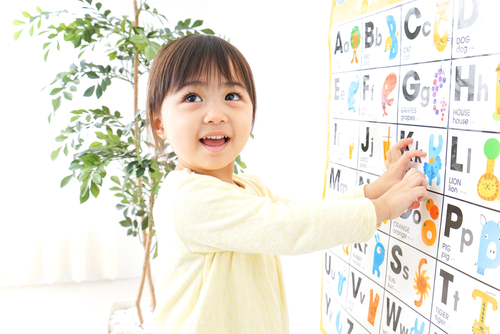
As an educator, you can you use sign language to elevate the inclusivity of your service while also providing children with additional ways to communicate and express themselves. Here’s a few tips to get started with Auslan:
Start early: The earlier you can introduce sign language for children, the better. Babies as young as six months can begin to learn basic signs for essentials like ‘milk’ and ‘more’.
Consistency is key: Be consistent in using signs alongside speech. Repetition helps children remember and integrate signs into their communication naturally.
Use visual aids: Visual aids such as flashcards with images and corresponding signs can be immensely helpful in teaching sign language. (We’ve even created a free download of Auslan flashcards for you!)
Make it fun: Incorporate sign language into games and songs. Children learn best when they are having fun. If you haven’t heard of Emma Memma yet, this is Emma Watkins’ (better known as Emma Wiggle) newest character who uses Auslan, dance, gesture and mime alongside singing, speaking and craft to engage children in a range of stories. A great opportunity for children to learn while having a great time.
Free download: Auslan flashcards
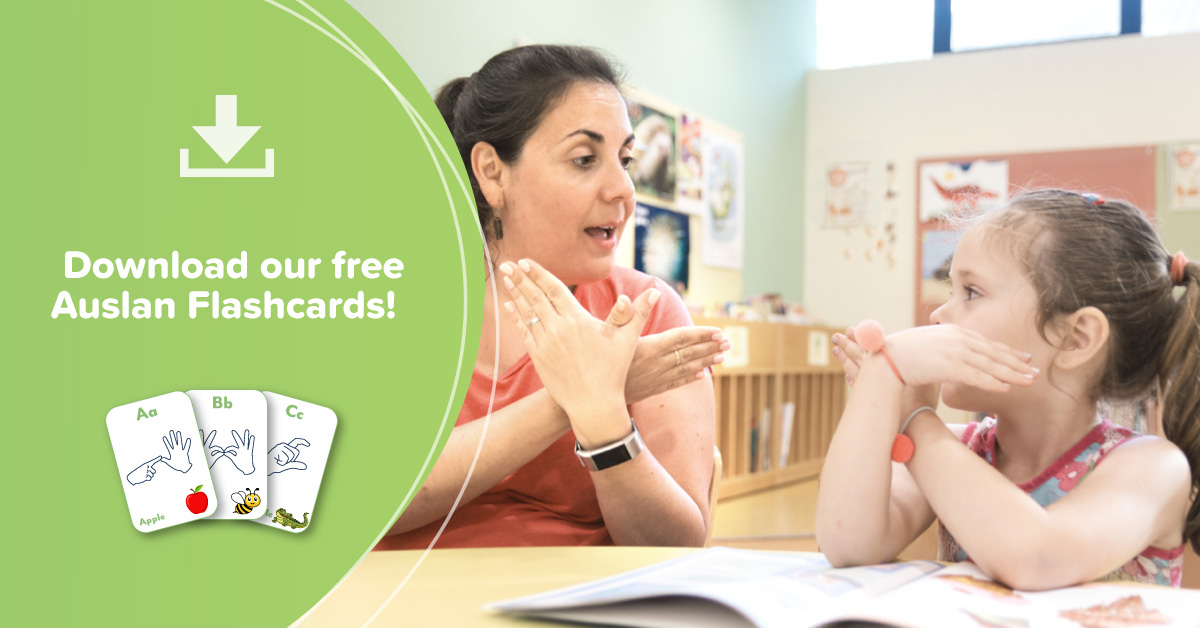
Submit the form to download your free Auslan flashcards.
To help you be inspired by International Day of Sign Language, we’ve created a set of free Auslan flashcards to download. These flashcards can be printed to use in your service, incorporating into your program. You might even like to share them with families for children to further their sign language journey at home.
Create more inclusive learning environments in early childhood education and enhance communication in your service with the power of sign language. Learn more about our early childhood courses here.
Be inspired by International Day of Sign Language to nurture Auslan in your service to empower all children to better express themselves and be heard, now and for life.
